The Strippers’ Union Faces Employers’ Trump Card
Hell-bent on stopping workers from unionizing, employers will sometimes shut down a location or an entire business—that’s what happened at the Star Garden topless bar in LA.
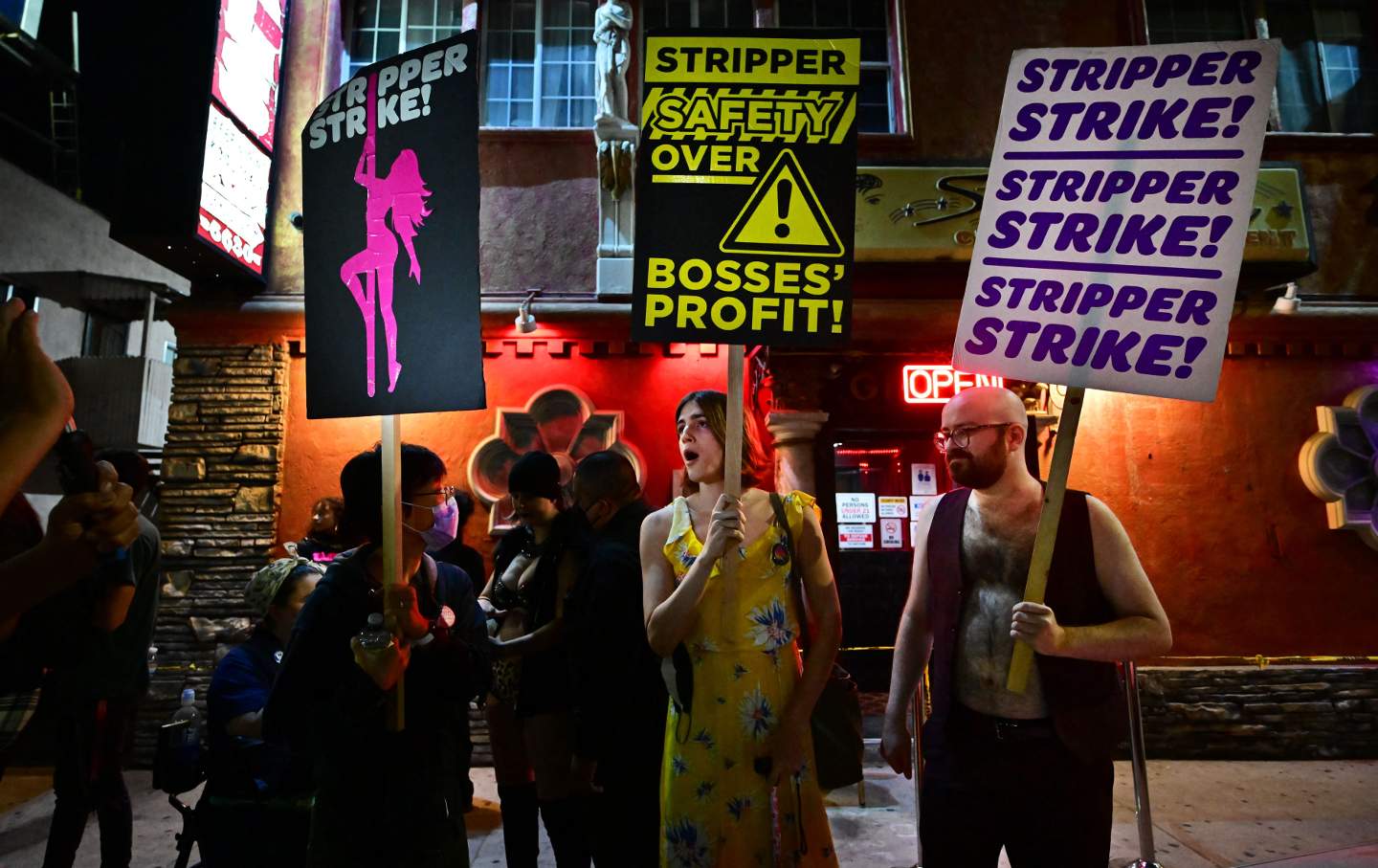
Supporters joined strippers for a rally outside the Start Garden Topless Dive Bar in August 2022 in North Hollywood, California.
(Frederic J. Brown / AFP via Getty Images)
Lilith and Velveeta used to love dancing at the Star Garden topless bar in Los Angeles. A large stage and free rein to pick their own music fostered a creative group of dancers who became close-knit.
But when a new owner took over in 2021, much of what had made the bar feel like a haven changed. The new owner instituted lap dance quotas that put pressure on dancers to “hustle out dances,” Velveeta said. (Dancers’ stage names have been used to protect their privacy.) There was a disturbing lack of safety. While dancing, Lilith recalled, she was bitten, licked, groped, and slapped by customers. Security staff often saw what was happening, but, unlike at other clubs, they didn’t intervene, dancers said, and the owner instituted a rule that dancers could no longer flag them down to ask for help. It was common knowledge among dancers, Lilith said, that “if a customer was spending money and the bar was making money off the customer, if that customer did anything to a dancer it would not be egregious enough for them to be kicked out.” Management let customers stay late to observe dancers as they cashed out and then watch what cars they drove home, which left dancers fearful for their safety.
Concerned, in March 2022 the Star Garden dancers came together and drafted a petition that they presented to management demanding better protection from the club and rules for customers around things like filming dancers and egregiousness drunkenness. “We knew that we had to do something collectively to try to make change,” said Velveeta. But when they showed up the next night to work their shifts, a security guard was posted in front with a rope across the door and said none of them were on the list to be let in. Locked out of their workplace, the Star Garden dancers launched a strike. They held nightly picket lines with different themes in front of the club, keeping the strike going for months.
Eventually, the dancers decided to form a union, and at the end of 2022 they voted unanimously to unionize with Actor’s Equity, becoming the only unionized strip club in the country at the time. The National Labor Relations Board (NLRB) helped the dancers broker a settlement with the owners in May of 2023 that stipulated that the club would reopen, the dancers would be offered their jobs and given back pay, and it would reverse the decision it had made during the strike to file for Chapter 7 bankruptcy.
And yet today the club is not back to normal. In March, the NLRB regional director for Los Angeles issued a complaint alleging that it had failed to reopen and rehire the fired dancers. They are still essentially locked out of their former employer a year and a half after they unionized.
Related Articles
What Star Garden workers are experiencing is disturbingly common in American union campaigns. Employers, hell-bent on stopping their employees from unionizing, will sometimes go so far as to shut down a location or even an entire business to disrupt a campaign. Kate Bronfenbrenner, director of labor education research at Cornell University, has studied employers’ threats to close when facing unionization campaigns. “I have found in my research consistently that the majority of employers will threaten [that] thanks to unionization that they’re going to have to shut down or move,” Bronfenbrenner told me. In a 2009 report, she found that employers threatened to close a location during 57 percent of union elections. Preliminary findings from when she looked at elections from 2016 to 2021 surfaced similar results. And although only a “small percentage” follow through, she said, the threat is enough to scare many workers away from organizing.
Examples of employers following through on their threats can be found all across the country and in many different industries. After all three of its locations in Ithaca, New York, voted to unionize, Starbucks closed all the stores in the area down. The NLRB ordered it to open one of them back up last July, but it still hasn’t. In 2015, Walmart shut down five stores that had been engaging in organizing. A week after the staffs of news sites The Gothamist and DNA Info voted to unionize in 2017, the owner abruptly shuttered them. After an aggressive anti-union response to its workers’ organizing, No Evil Foods laid off its entire production workforce without severance in 2021.
Employees of Wydown Coffee in Washington, DC, recently joined these infamous ranks. They started talking about forming a union this past March. There had long been grumblings about pay—$11 an hour—and workplace safety, and then a change in management pushed them over the edge. It wasn’t always easy to get coworkers on board; in a low-paid job with schedules out of their control, workers “are typically not super-duper financially secure,” former employee Tom Friedl said. “The prospect of rocking the boat and potentially losing this one foothold of financial security they have is very daunting.” Still, they were able to get enough support to go public with their union campaign.
In early May, workers reached an agreement with management to hold a union election. A week later, five days before ballots were set to be mailed out, they all found out they were losing their jobs because the owners were shuttering both locations and going out of business.
It came as a shock to employees. “There was never any sign that the business was having any problems,” Friedl said. If anything, sales had been steadily climbing after the depths of the early pandemic. The company said it was the culmination of a process started a year prior, but workers pointed out that they were placing orders for new supplies and products the day before the closure. Management had been talking about opening a third location.
The closure has left many workers in an abrupt financial crisis. “My next paycheck is not showing up,” Friedl pointed out. “That’s a ticking time bomb for my life.” Months earlier, he had applied to and been accepted in journalism graduate schools, but he decided to turn the offers down to continue working on the union fight. Now he has neither. Josiah Batterson was living paycheck to paycheck while working at Wydown. “Now I don’t even get my next paycheck,” he noted.
“In some ways it’s worse than if we were to lose the election,” Friedl said. “If we lost the election, then that would be ultimately a decision made by the staff as a whole.” Instead, the owners kneecapped the effort while also depriving nearly three dozen people of their livelihoods. “They took the choice away from us,” former employee Holly Costanzo said.
The puzzle is that many of these cases don’t appear to be financially savvy. Starbucks’s move to close Ithaca stores prompted Cornell University, which used Starbucks coffee in all of its cafeteria facilities, to choose a different company instead. “It was a costly decision,” Bronfenbrenner noted. Sometimes management may see it as a warning shot to the rest of its workforce when it shuts down one or a few locations: This is what will happen if you, too, organize. It doesn’t always work; the Ithaca closings didn’t make a dent in Starbucks workers’ organizing.
But other decisions defy logic. The owners of Wydown Coffee, for example, have ceased to make any money at all. Bronbenbrenner hasn’t been able to do an academic study into why this happens, but in her experience, she has seen it most common when employees try to unionize at a place where the original founder is still in charge. There’s a “sense that they built it and how dare anybody challenge them,” she said. “It’s not about the money. It’s about control.”
It is, essentially, legal for an employer to shut down an entire business because it doesn’t want a unionized workforce. “The current doctrine [says] that employers can close a business, even admitting that their motivation for closing the business was unionization,” said Sharon Block, executive director of the Center for Labor and a Just Economy at Harvard Law School. “The idea, I guess, is that you can’t force somebody to be in business.”
Workers may be able to make a case if a company decides to just close a particular location, not the entire company, that it was an unfair labor practice, but they must be able to prove that it was directly about unionization and not a business decision. The standard requires “substantial evidence,” Block said, that it was “more likely than not” the motivation. But that can be challenging. Many companies will come up with a cover story about the locations being unprofitable without enough transparency to allow workers to check their assertions.
These kinds of company decisions are, under American labor law, off-limits to workers. They can bargain over what courts have deemed “mandatory” subjects such as wages and benefits, but “entrepreneurial” decisions, like whether to open or close businesses or locations, can’t be bargained over. Workers can only negotiate after the fact about the effects it will have on them—say, for example, whether they’ll get any severance pay.
Courts have essentially found that American companies have a constitutional right to operate their businesses the way they see fit, making it almost impossible to force them to reopen shuttered locations or entire companies.
The current general counsel at the NLRB, Jennifer Abruzzo, has tried. In 2022, she filed a complaint recommending that Chipotle be forced to reopen a location in Augusta, Maine, that was shuttered in the wake of an organizing campaign. In the end, though, the company’s settlement with the NRLB only gave fired workers backpay and preferential hiring at other Chipotle locations in Maine. But even if she had succeeded, the courts would eventually weigh in, and there the prospects aren’t great. “We’ve got a lot of bad judges out there,” Bronfenbrenner noted. “Employers know the courts are their defense.” Other forces also work against such remedies. In 2011, after Boeing moved a its Dreamliner production to South Carolina in retaliation for a strike in its Washington facility, the NRLB tried to force it to move back and faced such intense political blowback that the agency backed off. The facility never returned.
American labor law doesn’t have to be so toothless in the face of these threats to worker power. Block and Harvard Law Professor Benjamin Sachs argue that workers should be able to bargain over business decisions that have a substantial impact on them—such as whether to shutter a store. Congress could clarify that it’s illegal to close a business because an employer is trying to avoid unionization, and increase the penalties employers face if they violate the law, creating “a deterrent to employers playing these games,” Block said. Enough so, perhaps, that they would reconsider making these decisions in the first place. “It is really hard to unring the bell,” Block said, once an employer says it’s going to shut down.
Popular
“swipe left below to view more authors”Swipe →Today, Star Garden is open only three nights a week, instead of seven as before the lockout, not nearly enough to schedule all the dancers. It no longer accepts cash, forcing customers to be comfortable with strip club charges on their credit card bills, and dancers say it’s jacked up prices. Dancers are no longer allowed to touch themselves or customers, not even for hugs, a key part of what they do; giving lap dances without sitting on laps is nearly impossible. “Customers have been kicked out for high-fiving us,” Lilith said; one customer who touched one of her stiletto cowboy boots was made to leave. They believe it’s meant to deter customers from coming in and from tipping dancers. The club has strictly limited the number of customers allowed inside and arbitrarily sent some away. “The owners have done everything that they can to make sure that customers do not go inside the building and are not able to easily spend money on us,” Lilith said. So few customers come through the doors that the dancers essentially work for minimum wage, they said. Velveeta’s earnings went from a couple hundred dollars a shift to less than $100.
“It’s been super costly personally,” said Velveeta, who has gone into debt since the lockout. “We’ve all just had to deal with so much financial loss from this.” Lilith has run through all her savings; she’s had to go back to waitressing to make enough money. Star Garden’s reopening was “the light at the end of the tunnel,” Lilith said, as they waged their strike and voted to unionize. They anticipated welcoming back not just their previous regulars but their new supporters who had become loyal during the strike, which could allow them to replenish their emptied bank accounts. With the club more or less closed to normal business, the experience “has completely wrecked our finances,” Lilith said.
Dancers haven’t given up and are hoping the NLRB can force the club to change course or at least make them more financially whole. They also haven’t wavered from their decision to unionize. “None of us would trade doing this for the world, standing up for each other, and advocating for our own rights in the workplace,” Lilith said. It “has been life altering.”
The workers The Nation spoke to weren’t just upset about losing their jobs. They puzzled over the financial logic of essentially shutting down an entire business and forgoing all profit in order to wage an anti-union campaign. Velveeta goes further, arguing that accepting the union would have been a financial boon to the club. “It’s such a novel thing and people are so supportive of it,” she said, including potential customers. The owner “could be making more money than he ever has if he accepted the union. So that’s been very frustrating.”
“It’s sad when an employer would rather sacrifice their business rather than treat their workers with respect and give their workers a fair share,” Velveeta said. “It seems to be just a matter of ego and spite, which is very disappointing.”
We need your support
What’s at stake this November is the future of our democracy. Yet Nation readers know the fight for justice, equity, and peace doesn’t stop in November. Change doesn’t happen overnight. We need sustained, fearless journalism to advocate for bold ideas, expose corruption, defend our democracy, secure our bodily rights, promote peace, and protect the environment.
This month, we’re calling on you to give a monthly donation to support The Nation’s independent journalism. If you’ve read this far, I know you value our journalism that speaks truth to power in a way corporate-owned media never can. The most effective way to support The Nation is by becoming a monthly donor; this will provide us with a reliable funding base.
In the coming months, our writers will be working to bring you what you need to know—from John Nichols on the election, Elie Mystal on justice and injustice, Chris Lehmann’s reporting from inside the beltway, Joan Walsh with insightful political analysis, Jeet Heer’s crackling wit, and Amy Littlefield on the front lines of the fight for abortion access. For as little as $10 a month, you can empower our dedicated writers, editors, and fact checkers to report deeply on the most critical issues of our day.
Set up a monthly recurring donation today and join the committed community of readers who make our journalism possible for the long haul. For nearly 160 years, The Nation has stood for truth and justice—can you help us thrive for 160 more?
Onwards,
Katrina vanden Heuvel
Editorial Director and Publisher, The Nation
More from The Nation
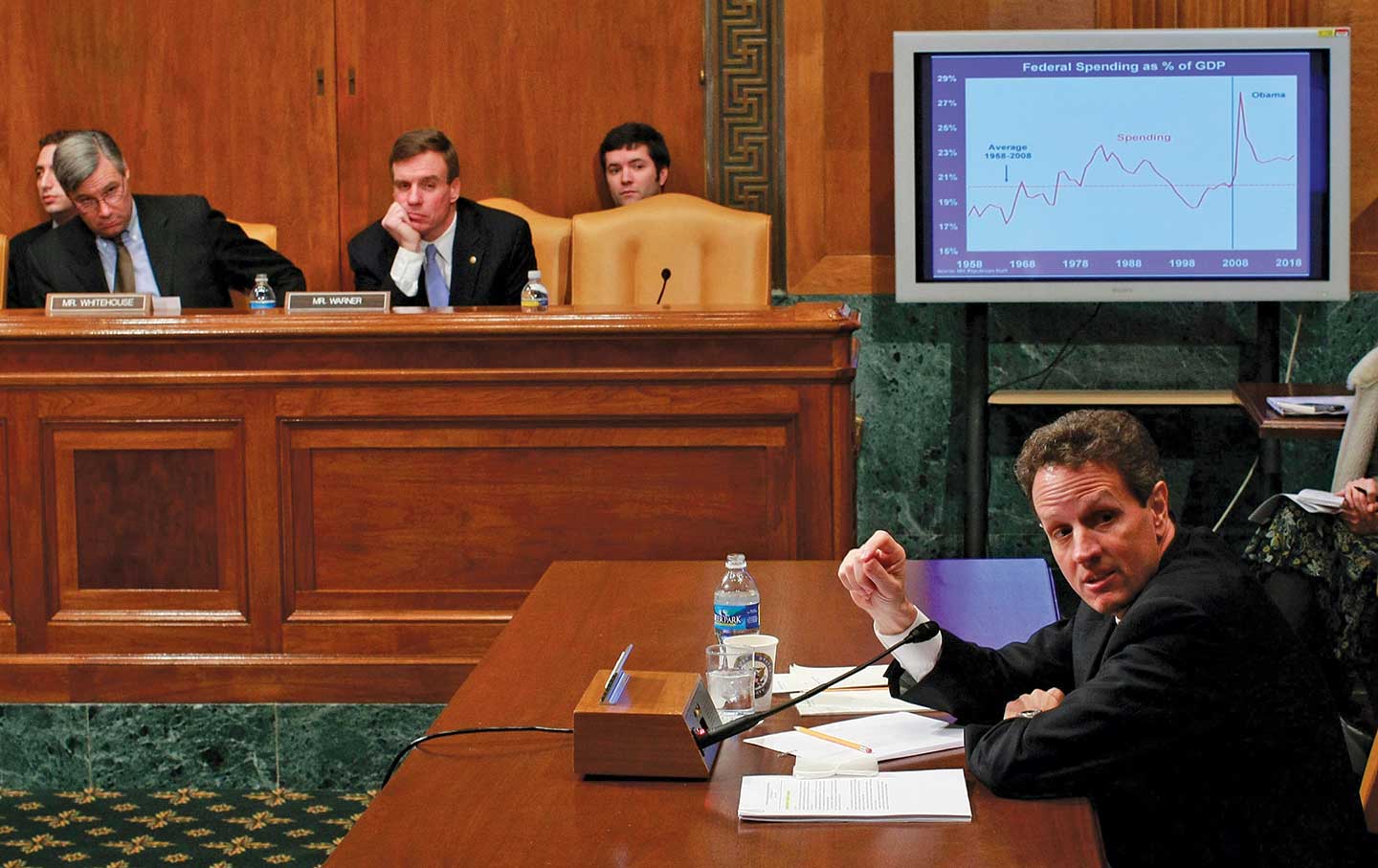
The Intractable Puzzle of Growth The Intractable Puzzle of Growth
For more than a century, the key measure of a healthy economy has been its capacity to grow and yet if production and consumption continues to expand at their current rate we migh...
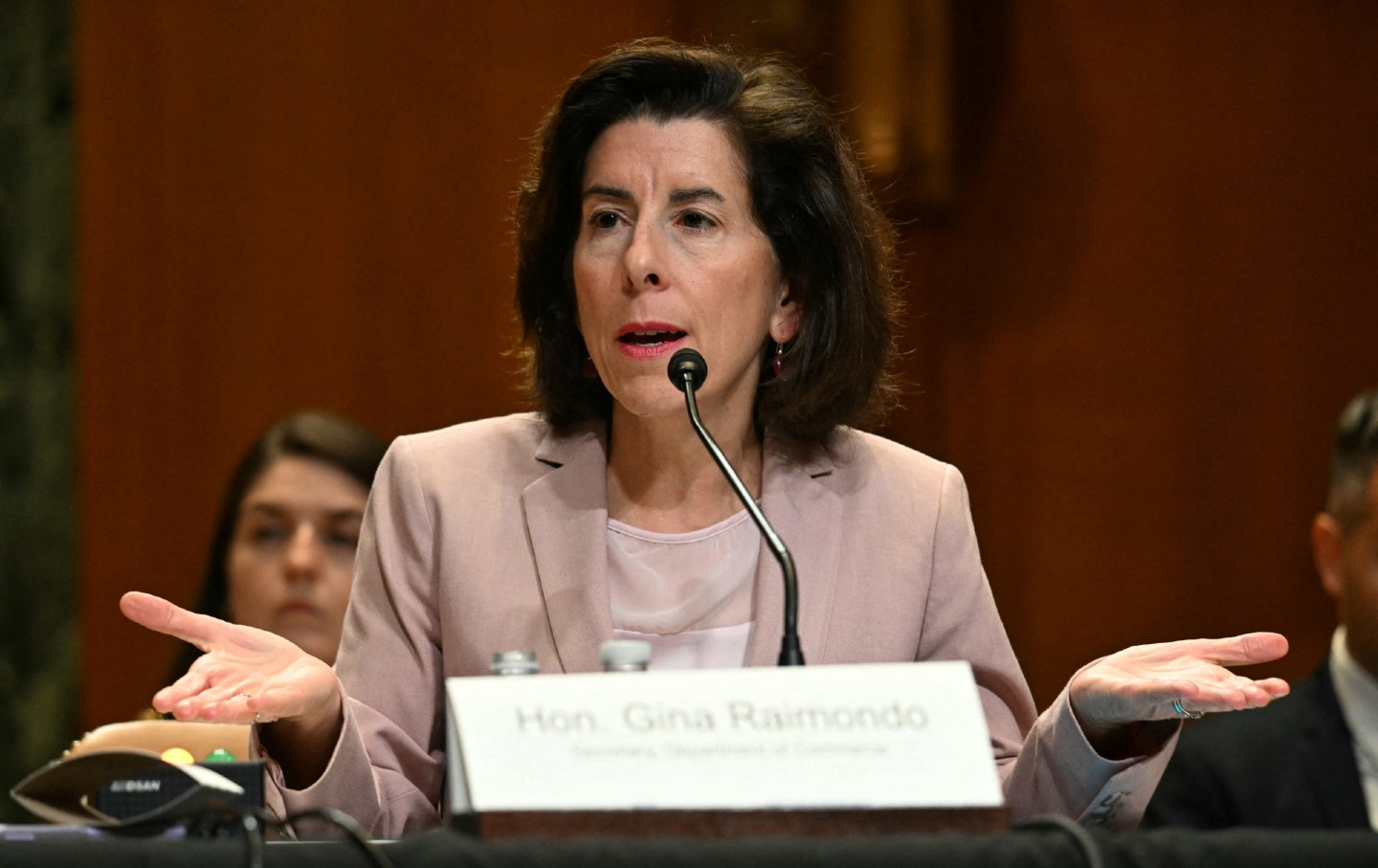
Gina Raimondo Would Be a Terrible Choice for Treasury Secretary Gina Raimondo Would Be a Terrible Choice for Treasury Secretary
The commerce secretary is rumored to be the front-runner to head the Treasury Department in a Harris administration. Her coziness with corporations makes her a disastrous pick.

Do People Think the Economy Is Bad Because the Media Failed, or Because the Economy Is Actually Bad? Do People Think the Economy Is Bad Because the Media Failed, or Because the Economy Is Actually Bad?
Two experts look at the data come to very different conclusions about the state of the US economy.
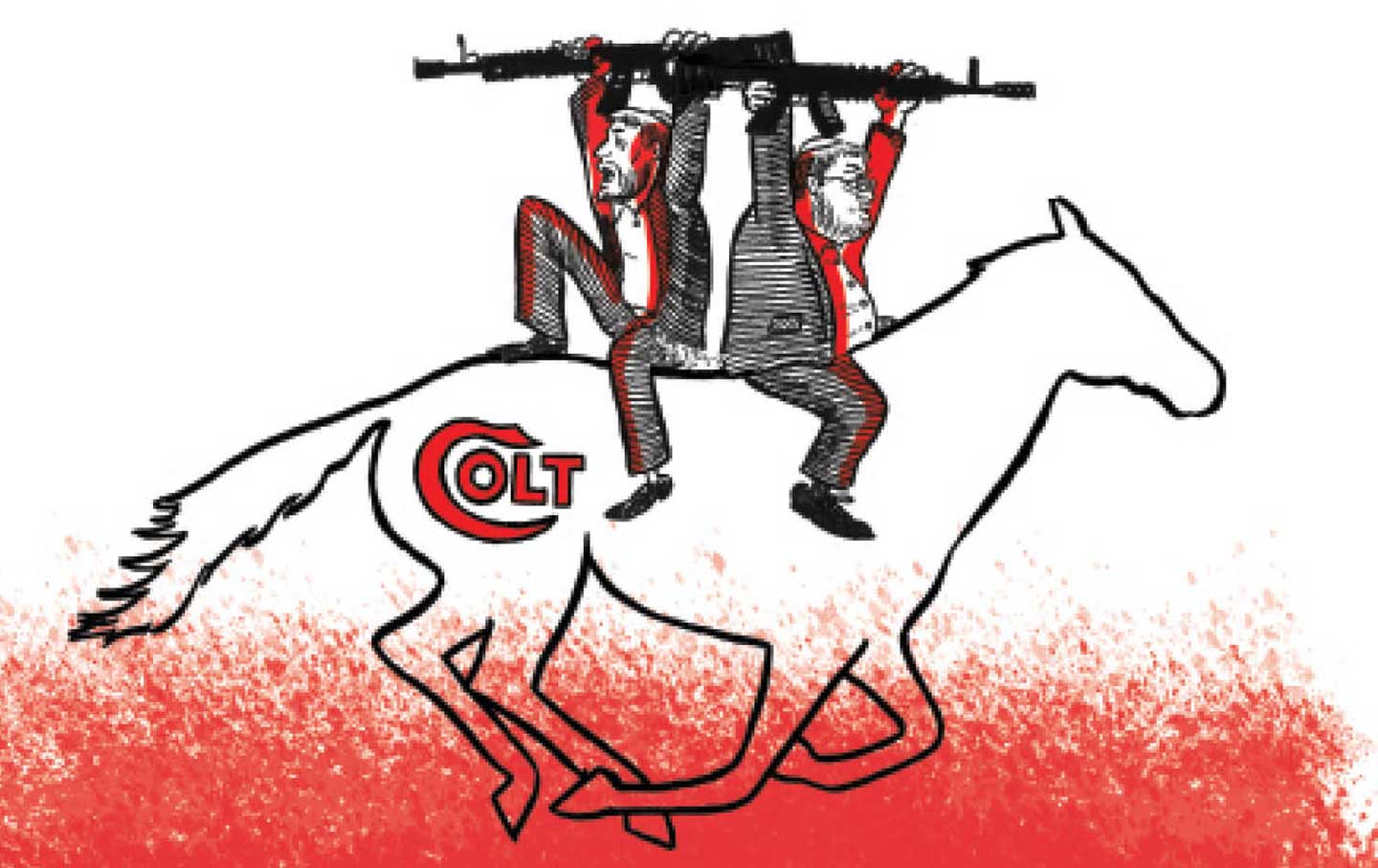
These Corporations Are the True “Winners” of the War on Gaza These Corporations Are the True “Winners” of the War on Gaza
From Colt to Caterpillar, American companies are earning big profits off of Israel’s ongoing assault on Gaza, turning the horrors of war into boardroom victories.

The Win for EV Workers in the South You Didn’t Hear About The Win for EV Workers in the South You Didn’t Hear About
Could the union victory at an electric bus manufacturing plant in Alabama turn the South into a hub for quality jobs in the green economy?
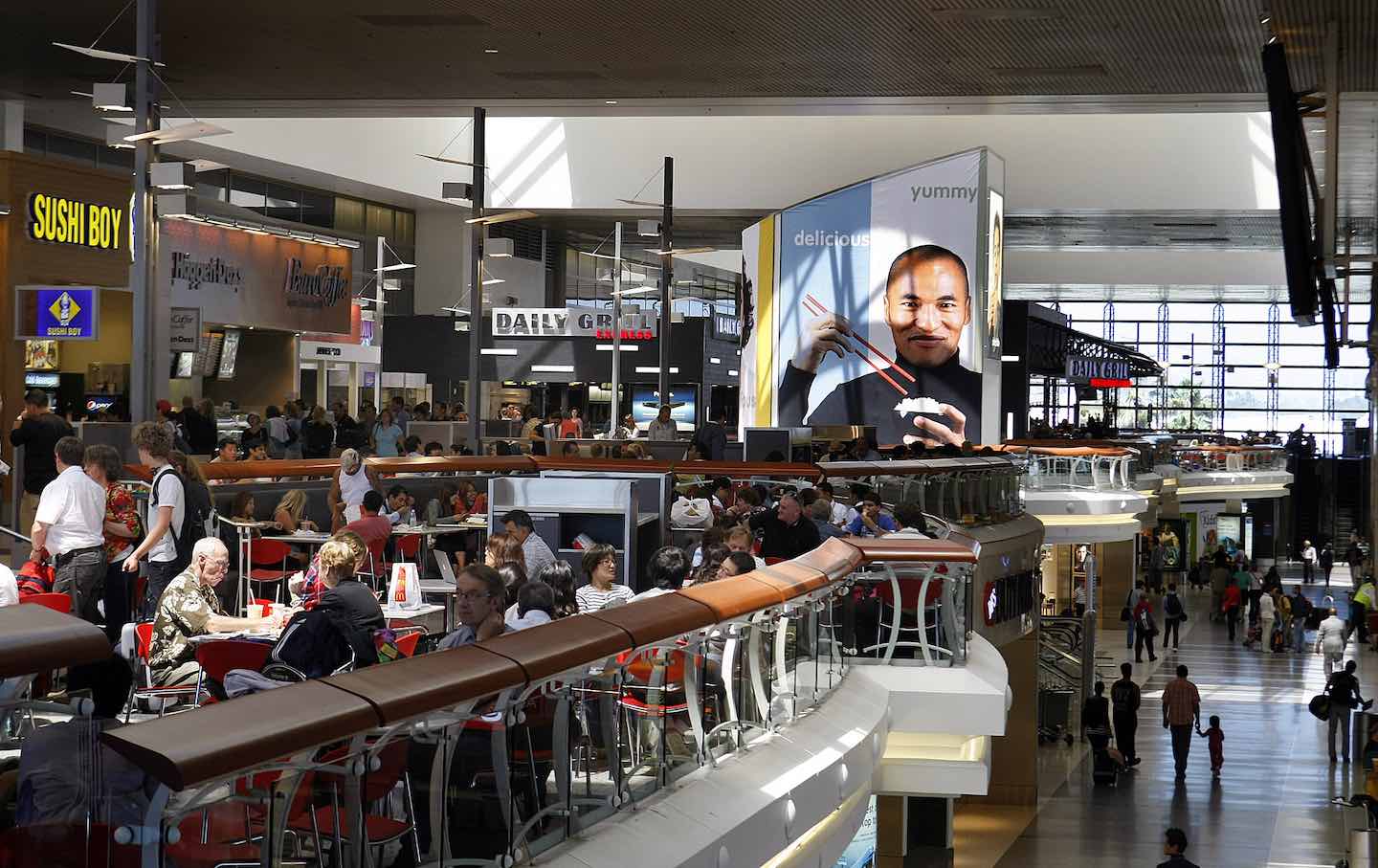
The World’s Biggest Pension Fund Is Taking a Hard Look at Labor Practices The World’s Biggest Pension Fund Is Taking a Hard Look at Labor Practices
“There are lines that cannot be crossed,” said a member of the board of California’s Public Employees Retirement System.


